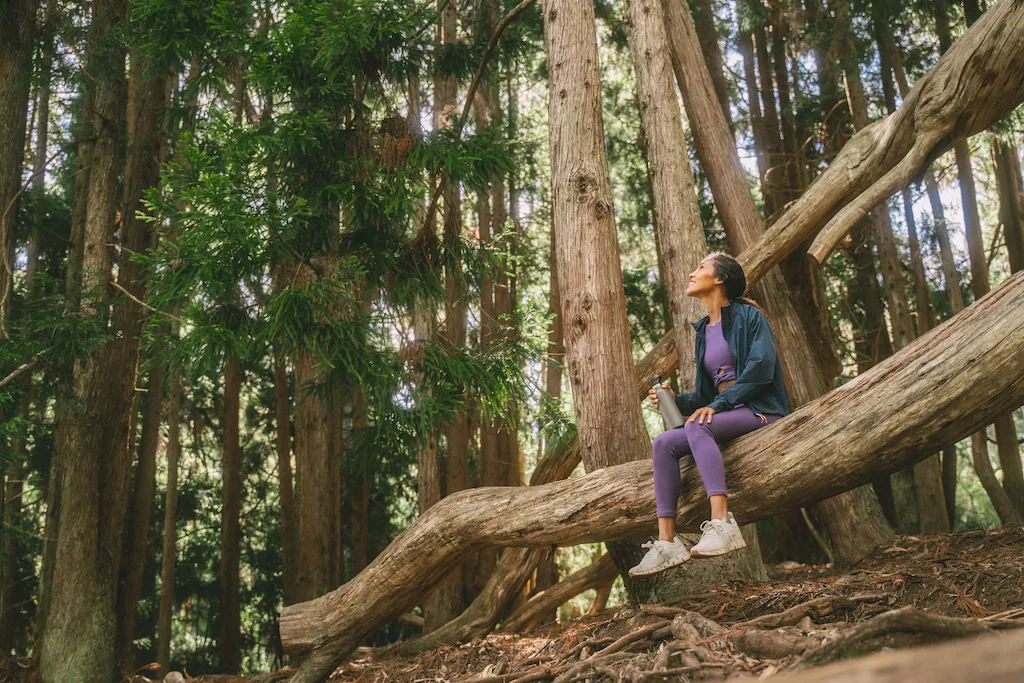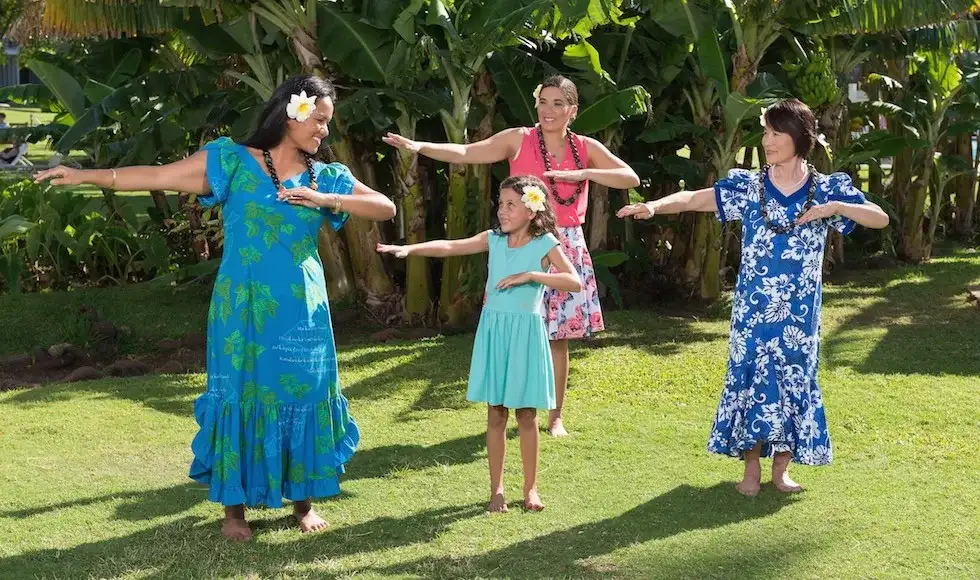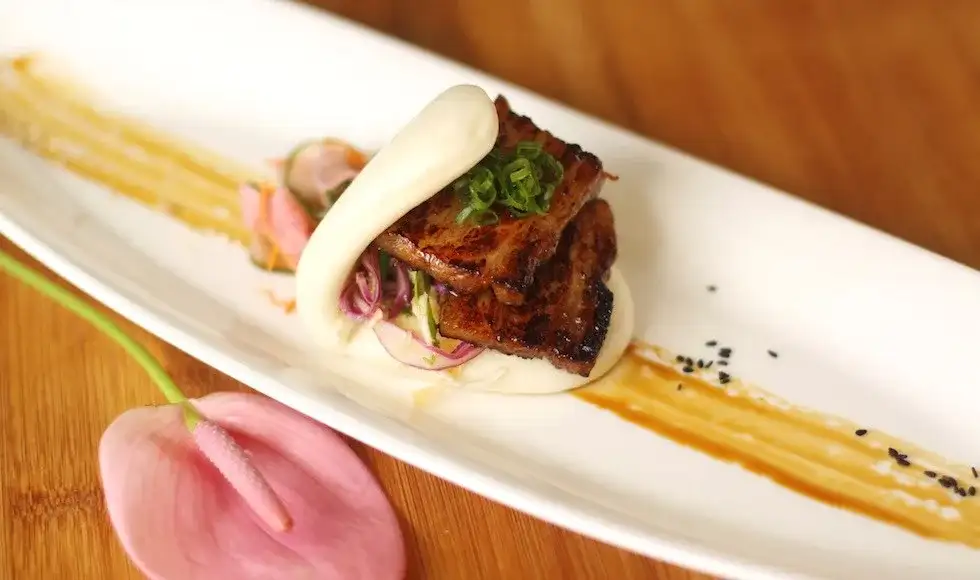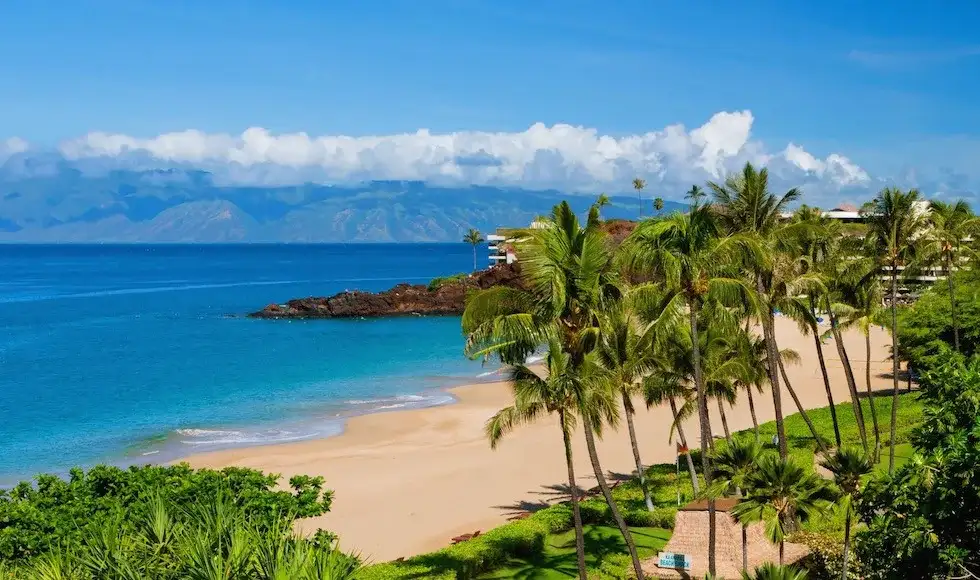This beautiful isle was born in a fiery explosion of two volcanoes.
To one side of Mau’i is the 1764 metre Kukui and on the other Haleakala, a 3055 metre dormant volcano with a Manhattan size crater that houses a vast desert of unusual flora including the rare Silversword. Add to this 190 kilometres of dazzling coastline, both dramatic and diverse for surfing, snorkelling and canoeing plus waterfalls plunging 300 metres, rainforests bursting with exotic vegetation and a stark lunar landscape so barren that the astronauts practised their moon landing here, and you have the extraordinary island of Mau’i.
The dramatic variations in climate and land formations are a large part of what makes Mau’i so exciting. The West Mau’i Mountains are rugged and verdant, with jagged peaks and deeply grooved valleys hiding waterfalls. Central Mau’i and the slopes of Haleakala are agricultural areas where the rich volcanic soil supports sugar, pineapple and ranchlands. The south shore, except where irrigated, is desert and scrub because Haleakala snags the rain clouds and empties them before they cross her peak.
The second largest of the Hawaiian Islands, Mau’i was settled by Polynesians and had its own ruling family. King Kamehameha’s warriors overthrew the kingdom of Maui to unite it with the other Hawaiian Islands. He made Lahaina in Mau’i his capital in 1802. Today Mau’i has evolved into a peaceful agricultural island of charm and rustic beauty, particularly Lahaina which has been restored to its previous colonial splendour.
The non-profit Lahaina Restoration Foundation which began over 36 years ago has preserved and restored a rich collection of historical sites in Lahaina.
The Mau’i Historical Society Museum in Wailuku is a delightful structure built between 1833 and 1850 and was the home of missionary Edward Bailey. Baldwin Home, built in 1838, is the oldest standing building in Lahaina and is made of thick walls of coral, stone and hand-hewn timbers.
The banyan tree came to Lahaina from India when only eight feet tall. William O. Smith, the Mau’i sheriff, planted it in 1873 to mark the
50th anniversary of the founding of Lahaina’s first Christian mission. Today the banyan has 12 major trunks, varying girths and reaches upward to a height of 15 metres stretching outward over a 61-metre area.
The Carthaginian, a replica of a 19th century brig which now houses a whaling exhibit, graces the harbour, which is also the departure point for a multitude of cruises and whale watching tours (in season).
However, if it is off season, Whaler’s Village in Ka’anapali houses an excellent whale museum. Lahaina Jodo Mission Cultural Park, on a point of land known as Puunoa, was once a small village fronting the royal grove of coconut trees. Now the best-known landmark in the area, the largest Buddha outside of Japan sits in the small park commemorating the arrival of the first Japanese immigrants in 1868.
Don’t miss a journey on the famous Sugar Cane Train, modelled after the turn of the century railroads that transported Valley Isle sugar to Lahaina mills. The steam driven locomotive runs between Lahaina and Ka‘anapali and visitors can hop aboard at Puukolii and Ka‘anapali as well.
While on Mau’i, you can explore the Mau’i Tropical Plantation which consists of 45 hectares of crops. Learn how to husk a coconut, create a delicious tropical fruit boat and string a fragrant lei. Then catch the Tropical Tram on a 40-minute circuit to see fruit cutting demonstrations, visit the marketplace and learn how to start your own tropical garden.
At the Sugar Museum you will see the production of sugar, once one of Hawaii’s biggest cash crops, from beginning to end.





